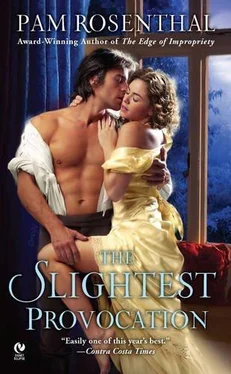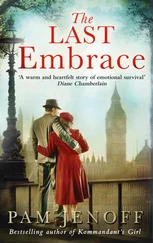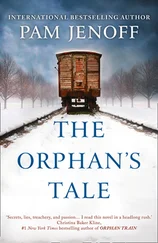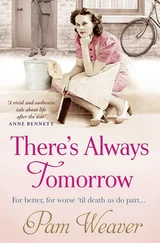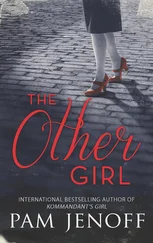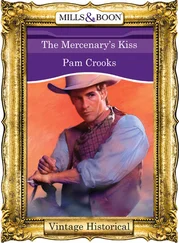The stagecoach was boarding. She turned to make sure that their bags and trunks and boxes weren’t tossed about too roughly. And here was Lady Christopher looking about her one last time before Mr. Morrice handed her into the coach, where it would be stuffier, more crowded, and a lot less fun, Peggy thought, than on top, even if the top of a stagecoach wasn’t no place for a lady.

Mary supposed that it could have been worse. A relief, in any case, finally to be under way. She squeezed herself into her backward-facing seat, tried not to sneeze at the dust rising from the worn cushions, nodded to her fellow voyagers, and held herself steady as they clattered off.
At least she was sitting by a window, the better to watch London slip away. Its farthest suburbs gone, she dozed, woke to finish the novel she had with her, dozed again, woke for a bad luncheon, dozed some more, and by late afternoon had drifted into a haze of reminiscence of a much earlier ride along this same route, on just such a bright day and also in the backward-facing seat-though of a far more comfortable vehicle.
She’d been ten, a spoiled, demanding, too energetic and impatient ten, alternately indulged and savaged by her older sisters, who always got to sit facing forward in the Penleys’ second carriage. Typically, neither Jessica nor Julia had as much as peeked out the windows; they’d ignored the landscape as completely as they’d ignored Mary, their thoughts and conversation quite entirely occupied by the young gentlemen they were engaged to marry.
Mary could smile affectionately now at how different each of the two courtships had been, and how characteristic of each sister. Jessie’s love story unfolding in a leisurely and classically correct sequence: Arthur Grandin had asked for two dances on the night of her come-out, paid a charming and attentive call the day after, sent a large bouquet and then a series of witty little gifts, and in due time made a proper offer of his blond, smiling, baronet’s-younger-son of a self.
While Julia’s amours had been conducted more briskly. More economically too, if you didn’t count the price of postage. An introduction to Mr. Jeremy MacNeill during a family trip to Glasgow, a daily exchange of letters after their return home, and a visit a month later from young Mr. MacNeill himself, proposing within the week and saving the Penleys the expense of a second come-out.
Still (and unlike another pairing Mary could think of), it had been an entirely suitable match. Jeremy’s father did business with Papa; the MacNeills were clever, industrious, rich, and growing richer, while-as Julia still took pains to point out-figuring prominently among Glasgow’s patrons of the arts and learned societies.
Both her sisters’ marriages had worked out as splendidly as anyone would have predicted, and until Arthur’s death two years ago, as happily as everyone had wished. Well, everyone except a certain badly behaved ten-year-old.
Ninnies, she’d thought. Idiots, with their sighs and giggles. Id-jits, she repeated silently to herself (much preferring the way the servants pronounced the word). But at least her sisters would be obliged to pay her a little attention when they discovered that…
“You’re in for it now, Mary! Miss Archer, the vile little wretch has tied our bonnet strings together.”
“And got them all sticky with lemon drops too! Just wait, imp, until I get my hands on you.”
She’d stuck out her tongue-it must have been a nasty bright, sugary yellow-from the safety of the far corner of the carriage.
“I want a story,” she’d declared. “I’ve been crying for one ever since we came through Leicester. And all you big, stupid things want to talk about is the silly oafs you’re going to marry.”
Mama always had stories for long journeys. Mary had begged to ride with Mama and Papa in the other carriage, or failing that, in one of the wagons following behind, the servants perched atop trunks of clothing and crates of household goods. But she couldn’t be allowed to travel like a gypsy. And her incessant fussing would have been a bother to Mama, who was very delicate these days.
Something wasn’t quite right about the baby due to be born this fall; the doctor had advised Mama and Papa to repair to the country for the remainder of the pregnancy. Mary imagined the selfish little thing thrashing about instead of lying quiet and curled up like the babies in the illustrated volume she’d found in Papa’s library. Impatient with its own too-long journey, the creature was probably fidgeting as uncontrollably as she was. Well, too bad for it. Too bad for him, as everyone wished it to be.
He’d occasioned too much inconvenience already, just because of the hope of his being a boy. It was Mama’s last chance to give Papa a son to inherit the brewery, and Papa was beside himself with anxiety, having never entirely recovered from the death of the boy twins who’d preceded Mary into the world.
Not that anyone had actually told her any of this. She’d pieced together what she knew from every clue she could find-and probably from a few made-up details as well. From servants’ gossip, the expressions on big people’s faces and what they said when they thought she wasn’t listening. The same way Kit had learned that the marquess wasn’t really his father. There are always ways for a too-inquisitive child to find out more than he or she is meant to know.
How old had she been when he’d told her about the mystery of his origins?
Fourteen? Fifteen?
Had he kissed her yet? No, of course not, because it had been she who’d first kissed him. Not directly after he’d said it. The next day, rather-she’d stayed up all night planning it, tossing about in an agony of delicious anticipation. How exciting it must be to know oneself the secret issue of illicit desire; how thrilling to feel such a desire oneself.
Or was she already feeling it?
Was desire what she felt for Kit?
After she’d kissed him, she’d known that it was-the knowledge only serving to make her life more perplexing during the year that followed, especially when she’d sneak out to meet him, during his school holidays.
At night, she’d scribble certain words with a drawing crayon, on the final pages of the journal that she’d kept in a locked box under her bed, along with a book of obscure sonnets. Words like carnality, concupiscence, greed, heat, fervor, wantonness, weakness, longing, thirst, and finally and most frighteningly, lust.
Tearing out the pages and burning them, the morning after she’d written that last word. But it was no help, for she’d already, involuntarily, committed the list to memory.
Sundays, she’d screw her eyes shut rather than peek at him in the Rowen pew across the aisle, lest the vicar catch a glimpse of her and divine her culpable state.
His holidays ended and him safely returned to school, she’d haunt their secret places, trying to puzzle it out.
But none of what she’d felt had really made sense to her until they’d finally gone to bed together.
And since Calais it made less sense than ever.
The coach lurched to a stop, as though to punctuate her thoughts and illustrate their futility.
Esslynne. A passenger took his leave from the top of the coach, and some fellows hauled a stout lady up to take his place.
Mary rubbed her eyes and straightened her traveling cloak. Esslynne had traditionally marked the last leg of the Penleys’ journeys between London and Beechwood Knolls. In an hour or so they’d enter the vast extent of the marquess’s lands, and in another hour the verges of their own much smaller property would slip into view.
Читать дальше
